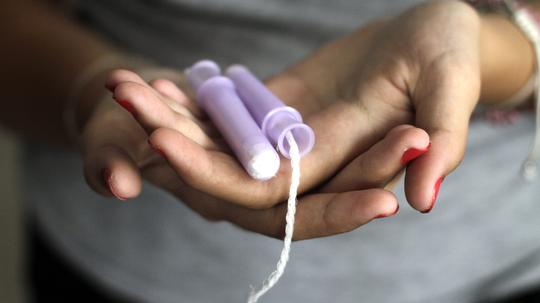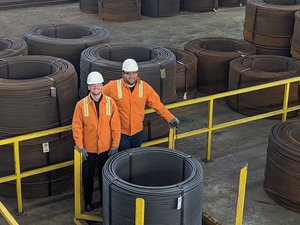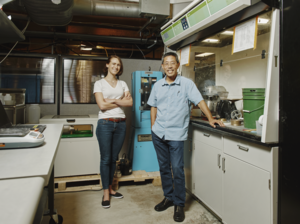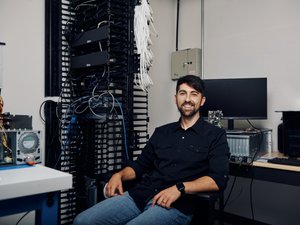
The Organic Project (TOP), a Duxbury-based period product startup, has just closed a $900,000 seed round.
The round was led by Maroon Venture Partners Fund, a for-profit venture fund that invests in early-stage companies linked to the University of Massachusetts-Amherst. Several angel investors also participated in the round. Ameeta Soni, an investment committee member of the Maroon Venture Partners Fund, will join TOP as a board observer.
Along with an earlier investment of $700,000, TOP's total funding now stands at $1.6 million.
CEO Thyme Sullivan co-founded TOP nearly two years ago when she and her co-founder set out to buy menstrual products for their preteen daughters. A graduate of UMass Amherst, Sullivan comes from the corporate world, having spent the previous two decades in various positions at Coca-Cola, PepsiCo and Nestlé. Denielle Finkelstein, TOP's co-founder and president, worked in corporate fashion, with a 20-year career spanning roles at Ann Taylor, Coach, Kate Spade and Talbots.
Yet neither woman could find the kind of corporate innovation they were used to in the world of menstrual products.
"My co-founder and I are moms with young daughters, and we both had business backgrounds," Sullivan said. "However, when we went looking for products for our daughters, we realized that feminine hygiene was a category that had little innovation, little eco-friendly options. That gave us the idea for this company."
For Sullivan, TOP focuses on three things. First, transparency: TOP products are made with a single ingredient—100 percent organic cotton. Second, environmental sustainability. (Tampons and pads, which contain microplastics, have an outsize impact on the environment. By contrast, organic tampons are completely biodegradable.)
TOP's third focus area is addressing period poverty. A study published in Obstetrics & Gynecology last year found that two-thirds of respondents had not been able to afford period products at least once in the last year, and 20 percent faced this issue on a monthly basis. A separate survey of 1,000 American students published by the period equity organization Period.org and period underwear company Thinx found that one in five teens struggled to afford period products, and 25 percent had missed class because of lack of access to them.
"As moms, when your girls are that age, that's when you're really talking about girls developing their self-esteem, and it can change the trajectory of their lives if they can't go to school, if they can't go to after-school activities or sleepovers or camps or music or sports," Sullivan said. "So this was huge. It was about trying to solve three big issues in a category that nobody wanted to talk about—and bring some levity so that people would talk about it."
To that end, TOP donates its products to local schools, hoping to ensure girls don't miss class. Last May, TOP donated 100,000 products to the City of Providence, R.I.'s after-school programs for Menstrual Hygiene Day. Sullivan said TOP has also donated to Boston Collegiate Charter School in Dorchester, and it has partnered with the groups empowerHER and Dignity Matters. Sullivan thinks the future of TOP's donations lies in these kinds of partnerships.
As for the levity component, Sullivan is bringing it herself. Last October, Sullivan ran the Reebok 10k in Boston dressed in a full-size tampon costume. She has also worn the costume for plenty of other occasions, including the Massachusetts Conference for Women, where she met soccer star Megan Rapinoe.
With the new funding, TOP plans to invest more in product innovation and develop a presence in grocery stores and other retail locations. Currently, TOP products are only available online, on Amazon as well as the company's own e-commerce platform. A box of 16 regular tampons is $7 on the company's site; a 20-pack of pads—10 day and 10 overnight—is $16.
TOP's products are all made in a factory in Barcelona, Spain, that is entirely hydro-powered and whose workers are all paid fair wages, Sullivan said. That said, shipping products across the Atlantic certainly has an impact on TOP's environmental footprint—and on the final cost of the product, which is slightly higher than a standard Always or Tampax product. Sullivan said she'd love to set up a production facility in the U.S., but that would be "very capital-intensive."
Meanwhile, at home, Sullivan is trying to pass on her company's mission to her own daughter, now 13 years old. When TOP made the donation to Boston Collegiate Charter School, the girl saw firsthand that students her age, just 30 miles away from where she lived, were at risk of missing school because of their periods. When she got back to Duxbury, she and her friends drew up a plan to put together "kindness bundles," which they did over the holidays and donated to Dignity Matters and Catie's Closet.
"Once they're exposed to problems that are happening in their backyard, in particular, this young generation, this Gen Z, they're advocates," Sullivan said. "They want products that are better for the environment and sustainable, but they really want to help others, and this, they can do in their backyards. I find that this local groundswelling of kindness is contagious. These girls are all in."








